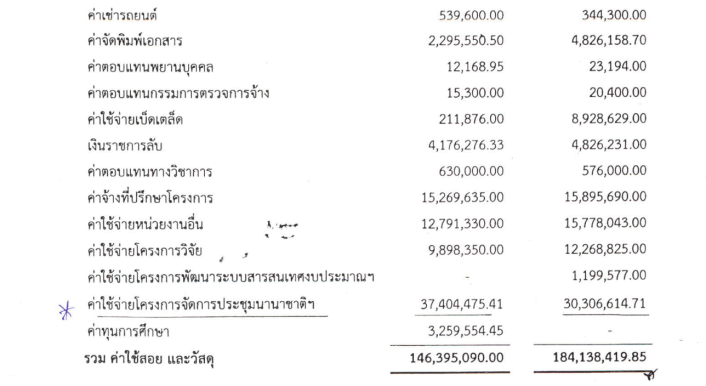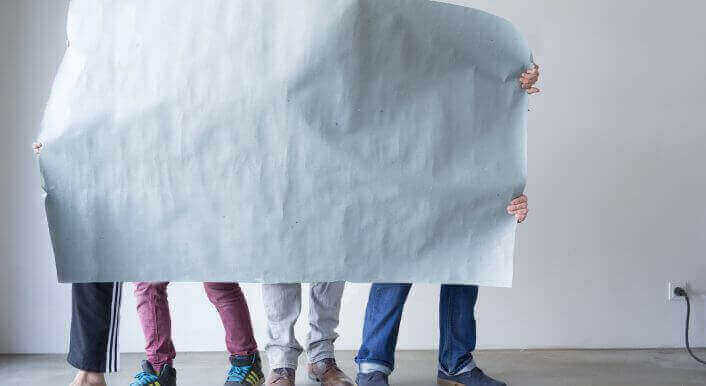How the Siemens bribery settlement funds opacity
After its huge bribery scandal, Siemens agreed to settle legal proceedings against it by funding anti-corruption work. Siemens uses these funds to finance the Austria-based International Anti-Corruption Academy (IACA). But the academy does not allow outsiders to scrutinize its finances. A joint investigation by CORRECTIV and the Austrian weekly magazine “News” has revealed evidence that a local old boys’ network is pulling the academy’s strings – while its other supporters are mostly authoritarian governments with poor anti-corruption records.
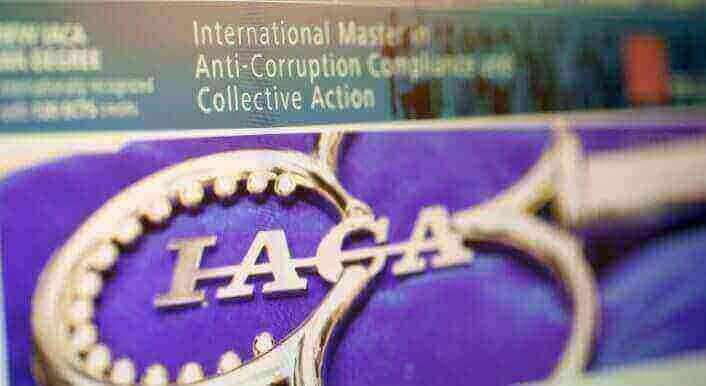
After its bribery scandal ten years ago, German industrial giant Siemens settled with law enforcement in several countries by paying substantial fines. As part of its efforts to move on, the company struck a deal with the World Bank: Siemens agreed to fund anti-corruption activities, to the tune of $100 million over 15 years. The „Siemens Integrity Initiative“ was supposed to fund organizations fighting corruption. The goal was to create an environment in which companies can do business without relying on bribery to win orders – in Central Asia, for example, where authoritarian governments give little thought to transparency.
One of the projects funded by Siemens is the International Anti-Corruption Academy (IACA), established in Vienna in 2011. The IACA’s funding sources, however, show that the Siemens Integrity Initiative does not live up to its own standards.
The IACA is surreptitiously run by Martin Kreutner, a former military officer and former official at Austria’s interior ministry. Major aspects of its finances are kept under wraps. Members of a local patronage network are occupying key posts. The activities of some of its members are now of interest to Austrian prosecutors, as this investigation reveals. It is the kind of circle that that the Siemens initiative was meant to thwart, instead of back.
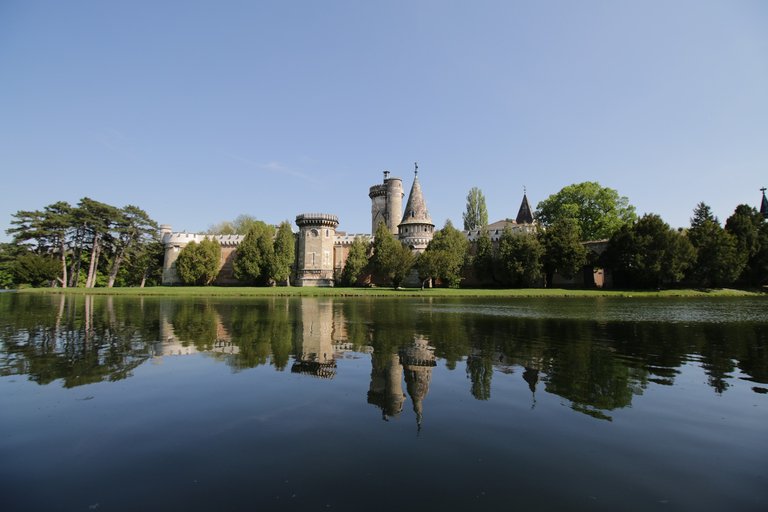
Dark waters: Austria has renovated a palais for IACA at Laxenburg outside Vienna.
pixabay
What is the IACA? The academy is located just outside the Austrian capital of Vienna at a palace in Laxenburg, the former summer capital of the Habsburg dynasty. Austria spent 11 million euro to help refurbish the IACA’s palace, where it offers summer classes as well as a masters’ program for anti-corruption experts from around the world: Prosecutors, lawyers, and audit court officials are taught how to investigate and prevent corruption.
The best recipe against corruption is very simple: transparency. This measure should, in particular, be applied to institutions teaching others how to work above board. Institutions such as the IACA. But despite repeated requests, the academy has declined to publish audited financial reports.
The public is unable to verify how IACA is spending its funds, how much money it has at its disposal, and whether independent auditors are checking its accounts. It’s a level of secrecy unheard of amongst organizations fighting corruption.
A spokesman for the IACA offers a curious explanation: the academy cannot publish its financial audits because the IACA’s member states should be the first to see them. But they’ve never requested them, the spokesman said.
The IACA works much like UN organizations: States become members by ratifying the organization’s charter. IACA has over 70 member states who are supposed to finance the academy.
But in fact only about two dozen nations contribute to IACA financially, according to the sparse financial information available on its website. That includes countries where corruption is a hallmark of the political system, such as Russia and Azerbaijan. They seem to be keen to improve their reputation by contributing to IACA. But most countries are paying only small amounts, in the tens of thousands of euros at most.
It is also unclear whether IACA finances are independently audited.
Moreover, IACA’s sponsors are involved in choosing its financial auditors, a conflict of interest. Of its three international auditors, one is chosen by Russia. But there seems to be a lack of candidates: two Russian auditors were recalled after a short time span at IACA.
The IACA’s academic operations also show a disturbing proximity to authoritarian regimes. Of about 30 students participating in one of the IACA master classes, five came from Azerbaijan, an IACA sponsor. The central Asian country is ruled with an iron first by strongman Ilham Aliyev. A large part of its economy is under his kleptocratic control. Criticism and transparency are not wanted.
The Azerbaijanian group included a prosecutor working for the authority that jailed journalist Khadija Ismayilova with trumped-up charges. Ismayilova had investigated Aliyev’s assets, a key activity in anti-corruption work.
Other participants in the program were shocked to find themselves next to officials of the Aliyev regime in IACA’s classroom, witnesses said. Musayev gave the classes’ graduation speech, lauding the Austrian Count Clemens von Metternich, the politician who battled the remnants of the French revolution in 19th-century European politics. IACA seems to have no qualms working with kleptocrats and held one of its annual member states’ meetings in Azerbaijan.
Several persons with knowledge of IACA attribute the lack of transparency to Martin Kreutner’s management style. They say he is running the academy in a strict, surreptitious, top-down manner. Employees need to justify everything they do but have hardly any insights into IACA’s finances themselves. Some well-known academics left IACA after just a short stay: at IACA, they do not seem to find the level of openness and freedom they are used to. Nobody involved with the IACA was willing to be quoted, fearing repercussions.
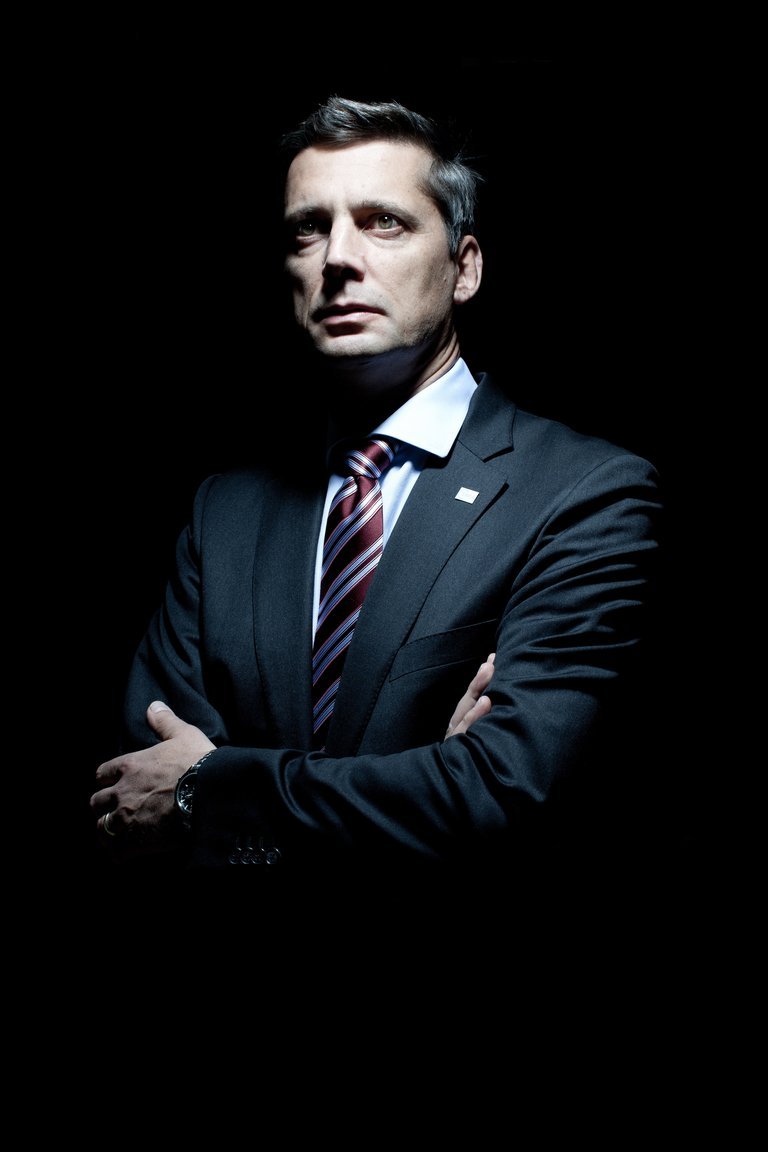
Head of IACA: Martin Kreutner
Ian Ehm / pictre alliance / APA / picturedesk.com
While there is only sparse financial information available on IACA’s website, Kreutner’s craving for recognition can hardly be overlooked. Its press releases and image galleries largely consist of Kreutner’s meetings with the ambassadors of IACA member states. The message: IACA is comparable to an international UN organization.
In reality, it’s Austria where Kreutner’s name is now surfacing for the second time in relation to a scandal. Kreutner, the Austrian representative to IACA’s board, and a local tax advisor all had links to a real estate fund that is now under investigation by Austrian anti-corruption prosecutors, as this investigation reveals. It seems all three are connected, which raises serious questions about corporate governance at IACA, which is partially tax-funded.
According to a 2015 report by the Austrian courts of auditors, a fund connected to Austria’s ministry of interior sold off about 200 flats too cheaply, undercharging by six million euros. Prosecutors are investigating these transactions.
As early as 2007, the ministry’s fund had the idea to hire consultants to advise it on how to prevent corruption and set up a proper governance system. It paid them 60,000 euros, according to the auditors’ report. But one of the experts already worked at the ministry of interior: Martin Kreutner. A second expert was Hermann Feiner, who now represents Austria on IACA’s board of governors.
An official is involved in a project paid for by his own ministry? It’s an odd arrangement. Investigators for Austria’s Federal Anti-Corruption Bureau have recently thrown up the question whether sufficient services were rendered to the fund in return for the consultancy fees.
Asked about the fund, Kreutner only said that he gave lectures to several state offices as part of a corruption-prevention framework and that he never received any compensation from any fund. He also said he never had a „business relationship“ with IACA board member Feiner. Feiner, who today works at Austria’s ministry of interior, did not respond to questions.
Kreutner and Feiner are not the only connections between IACA and the fund. It is a network that emerged around Austria’s former Interior Minister Ernst Strasser. The politician of the Austrian conservative party ÖVP was sentenced to three years in jail in 2014 as a Member of European parliament in a bribery case. Part of this environment is also the former tax advisor of the fund based at the ministry of interior. He has also been working for IACA. The tax advisor bought one of the flats that is now of interest to state prosecutors.
None of the three are targets in the investigations. There are no allegations of wrong-doing. Kreutner said that he met the tax advisor only once.
Kreutner responded to questions about the IACA’s lack of transparency and its links to authoritarian regimes only summarily. He said that all IACA projects were audited by independent auditors. „In a short time span, IACA has won international recognition despite scarce resources and support by its members states that leaves much room for improvement“, he said.
Kreutner also rejected criticism of IACA’s relationship with authoritarian governments. He argued that the UN human rights council said in 2015 that IACA’s programs promoted human rights improvements. „Being present in all countries – and not only those free of corruption – in order to achieve this, is at the very core of an international organization.“
Could Siemens have known that links would surface between key IACA figures and Austria’s scandals? At least the company – which is probably IACA’s most important sponsor, given how little the members states pay in comparison – needs to ask itself why it works with an institution as opaque as IACA. A spokesman for Siemens said that IACA has provided detailed information on how it spends the Siemens funding.
In at least one instance, Siemens also demanded more transparency of IACA. Siemens had initially funded the academy with about USD $2 million. After its first encounter with IACA’s reporting procedures, a Siemens employee wrote an email to IACA’s Kreutner, asking whether IACA could improve its transparency, as was the case with other recipients of Siemens funding. „We are of the opinion that transparency is important for the credibility of organizations that have subscribed to the promotion of ethics, integrity and the fight against corruption“, the e-mail read, in part. In particular, the Siemens employee asked for a more detailed breakdown of IACA’s staff costs. Siemens nevertheless increased its funding for IACA during the second funding round of its Siemens Integrity Initiative to USD $5 million.
The Siemens employee also told Kreutner that projects funded by the initiative should lead the way in voluntarily disclosing information. This can certainly not be said of IACA.


